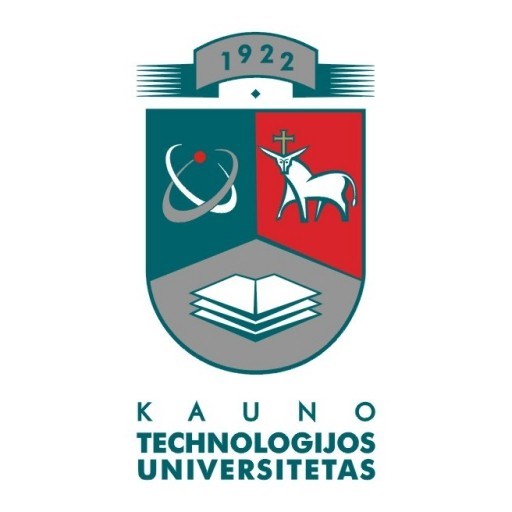Photos of university / #officialuom
Polymer Science and Engineering at The University of Manchester is a comprehensive and innovative programme designed to equip students with a deep understanding of the fundamental principles and advanced techniques related to the design, production, and application of polymer materials. This multidisciplinary course combines aspects of chemistry, physics, materials science, and engineering to prepare graduates for diverse careers in industries such as pharmaceuticals, plastics, aerospace, automotive, and biomedical sectors. Throughout the programme, students will explore the molecular structure and properties of polymers, develop skills in synthesising new polymeric materials, and learn about manufacturing processes including extrusion, moulding, and nanotechnology. The curriculum emphasizes both theoretical knowledge and practical laboratory experience, providing students with hands-on training in state-of-the-art facilities. Emphasis is placed on sustainability, environmental impact, and innovation, preparing students to address global challenges related to resource efficiency and renewable materials. The programme includes various modules covering polymer chemistry, polymer physics, processing techniques, and characterization methods. Students also undertake a research project, often in collaboration with industry partners, allowing them to apply their learning to real-world problems. Graduates of this programme are well-positioned to pursue careers in research and development, quality control, production management, and technical consultancy. The University of Manchester’s strong links with industry and research institutions offer students valuable networking opportunities and access to cutting-edge developments in polymer technology. With a blend of theoretical foundation and practical application, the Polymer Science and Engineering degree aims to produce innovative professionals capable of advancing the field of polymer materials and contributing to sustainable technological solutions.
The Master's degree in Polymer Science and Engineering at The University of Manchester offers an in-depth exploration of the fundamental and advanced principles underlying the development, processing, and application of polymer materials. This rigorous programme is designed to equip students with comprehensive knowledge of polymer chemistry, physics, and engineering, enabling them to contribute effectively to the innovation and advancement of polymer-based technologies across various industries.
Throughout the course, students will study the molecular structure and properties of polymers, gaining insights into their synthesis, characterization, and manipulation. The curriculum covers core topics such as polymer processing techniques, rheology, composite materials, and nanotechnology, providing practical skills that are essential for designing new materials and improving existing ones. Emphasis is placed on understanding the relationship between a polymer's structure and its properties, allowing students to tailor materials for specific applications, including packaging, biomedical devices, automotive, and aerospace industries.
The programme combines theoretical lectures with laboratory work, fostering hands-on experience in modern research and manufacturing techniques. Students will have the opportunity to work on innovative projects, collaborate with industry partners, and utilize state-of-the-art facilities for materials analysis, including spectroscopy, microscopy, and thermal analysis. These practical experiences help develop problem-solving skills and prepare students for careers in research, development, or industry.
In addition to technical expertise, the programme emphasizes professional skills such as project management, communication, and teamwork, which are vital for successful careers in the polymer industry. The course also encourages critical thinking and independent research, with opportunities to undertake a research project or dissertation on a contemporary topic in polymer science and engineering.
Graduates of the programme will be well-positioned to work in a wide range of sectors, including polymers manufacturing, materials development, quality control, and research institutions. They will be equipped to contribute to sustainable development goals by innovating environmentally friendly polymers and advancing recycling technologies. Overall, this Master’s programme prepares students for leadership roles in the dynamic and growing field of polymer science and engineering, fostering the skills needed to drive technological innovation and meet global challenges.
Program requirements for the Master of Science in Polymer Science and Engineering at The University of Manchester include a strong academic background in relevant scientific disciplines such as Chemistry, Chemical Engineering, Materials Science, or Physics. Applicants are typically expected to hold at least a 2:1 honours degree (or international equivalent) in one of these fields, demonstrating solid foundational knowledge in chemistry, materials, and engineering principles. English language proficiency is required for non-native speakers, usually evidenced by IELTS, TOEFL, or equivalent tests, with minimum scores set by the university (for example, an IELTS overall score of 6.5 with a minimum of 6.0 in each component).
Applicants must submit a completed application form, accompanied by academic transcripts, a personal statement outlining their interest and motivation for studying Polymer Science and Engineering, and two academic references supporting their suitability for postgraduate study. Additional documents such as a CV or resume may be required, highlighting relevant research, work experience, or industry exposure related to polymers or materials science.
Preference is given to candidates demonstrating prior laboratory or industry experience in polymer research, chemical synthesis, or materials characterization. If applicable, portfolio submissions or research proposals can strengthen an application but are not always mandatory. International students should check specific visa requirements and ensure compliance with immigration policies.
Proficiency in English and appropriate academic qualification are necessary but not sufficient; applicants should also display analytical skills, problem-solving capabilities, and an enthusiasm for research and development within the polymers field. The selection process involves review of academic records, personal statement, references, and alignment with the program's objectives. Once admitted, students will be expected to meet progression and attendance standards throughout the course duration.
The University of Manchester offers a range of financial support options for students enrolled in the Polymer Science and Engineering program. Funding opportunities include government-funded scholarships, such as the UK government’s Research Councils’ funding, which provides tuition fee coverage and maintenance stipends for eligible students, particularly those undertaking research-based or integrated master's pathways. For international students, scholarships such as the Global Excellence Scholarships and the International Excellence Scholarships are available, offering partial fee waivers to attract outstanding applicants from around the world. Additionally, the university provides department-specific bursaries and scholarships aimed at supporting students in engineering and materials science disciplines.
Students are encouraged to explore external funding sources, including industry-sponsored scholarships, charitable trusts, and professional organizations related to polymers and materials engineering. The university’s financial aid office also offers guidance on part-time work opportunities and student loans, which can assist with living expenses and other costs associated with studying. For postgraduate students, there are teaching and research assistant positions that provide stipends and tuition fee reductions, enabling students to gain valuable teaching experience while offsetting educational expenses. Furthermore, many students benefit from installment payment plans that allow for manageable tuition fee payments over the course of their studies.
Overall, the university aims to ensure that financial barriers do not prevent talented students from pursuing Polymer Science and Engineering, and therefore, offers multiple support pathways tailored to different student needs. Applicants are advised to check the university website regularly for updates on new scholarships and funding opportunities, and to contact the admissions office or the department’s financial support team for personalized advice.
The Polymer Science and Engineering program at The University of Manchester offers students a comprehensive education in the synthesis, characterization, and application of polymer materials. This multidisciplinary course combines principles from chemistry, materials science, and engineering to prepare graduates for careers in industries such as plastics, healthcare, aerospace, and electronics. Throughout the program, students gain practical skills in polymer synthesis, processing techniques, and analytical methods, supported by state-of-the-art laboratories and research facilities. The curriculum includes modules on polymer chemistry, nanocomposites, biodegradable plastics, and advanced characterization methods, ensuring a broad understanding of both theoretical concepts and real-world applications. Students also have opportunities for industry placements and collaborative projects, fostering valuable professional experience and industry links. The program emphasizes innovation and research, encouraging students to contribute to the development of new polymer materials for sustainable and high-performance applications. Graduates of the course are well-equipped to pursue careers in research and development, product design, or further academic study. The University of Manchester's renowned academic staff, coupled with a vibrant research environment, make it an ideal place for students interested in shaping the future of polymer technology and materials science.










